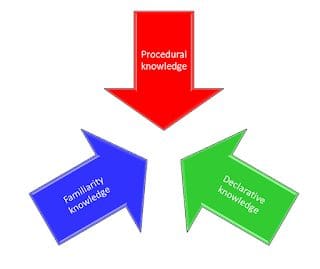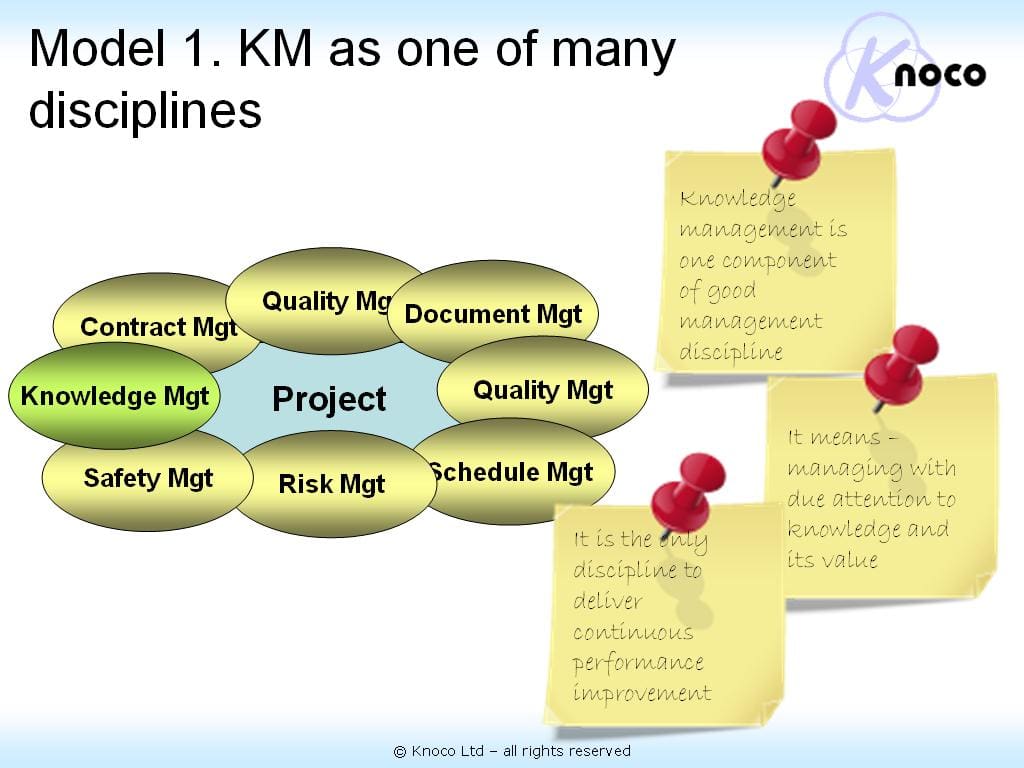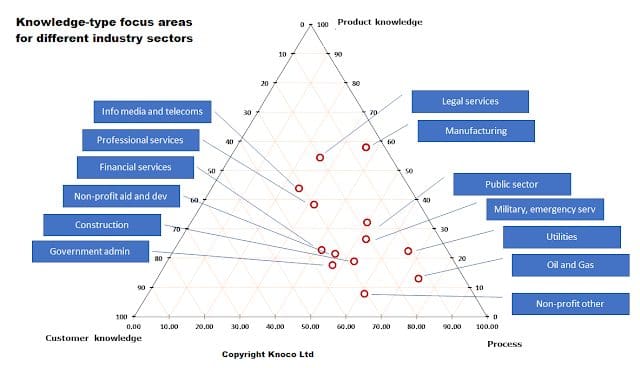
Favorite There is more than one type of Knowledge, and KM needs to decide which type requires the main focus and effort. Both linguistically and philosophically there is more than one type of knowledge. This is important, and is an area where the English Language is less than helpful to
Read More
 Shared by Nick Milton September 16, 2019
Shared by Nick Milton September 16, 2019

Favorite Rated the number 2 Knowledge Management authority by Agilence, the social authority ranker. Second only to the legendary Stan Garfield (congratulations Stan) View Original Source (nickmilton.com) Here.

Favorite The Experts can sometimes be resistant to KM, seeing it as a threat or a burden, with little personal reward. How can we address this? Image from wikimedia commons Many clients we speak to are having real problems recruiting the expert knowledge holders to the concept of Knowledge Management. Even
Read More
 Shared by Nick Milton September 13, 2019
Shared by Nick Milton September 13, 2019
Favorite People often make a big thing about learning from failure, but learning from success is just as important, and can often be overlooked. Crossroads by Chris Potter on Flickr and stockmonkeys.com The impetus to revisit this topic came from a one-liner post on LinkedIn by Oleg Vishnepolsky reading “Sometimes I
Read More
 Shared by Nick Milton September 11, 2019
Shared by Nick Milton September 11, 2019

Favorite Is KM a Science? Is KM a Philosophy? No – it’s a Management Discipline. And here is why that is a useful viewpoint. I have met many people over the years who treat Knowledge Management as something entirely unique – a philosophy, almost, or a “world-view”. For these people,
Read More
 Shared by Nick Milton September 10, 2019
Shared by Nick Milton September 10, 2019
Favorite Confirmation Bias is one of the most pernicious cognitive biases, and is a major challenge to Knowledge Management. See it in action below. Confirmation bias is a powerful cognitive bias, which means that people Tend to select evidence that supports what they already believe, and Set up tests that
Read More
 Shared by Nick Milton September 9, 2019
Shared by Nick Milton September 9, 2019

Favorite The default approach to managing knowledge which many companies use, is to keep knowledge in people’s heads, and to move the knowledge where it is needed by moving the people, not by transferring the knowledge. Homer Simpson’s head by SOCIALisBETTER on Flickr In this old model, knowledge is owned
Read More
 Shared by Nick Milton September 6, 2019
Shared by Nick Milton September 6, 2019

Favorite There is no one-size-fits-all solution for knowledge transfer, because not every transfer context is the same. However we can look at four main classes or types of knowledge transfer, by looking at the dimensions of TIME and LOCATION. There are other dimensions as well, such as whether the transfer
Read More
 Shared by Nick Milton September 5, 2019
Shared by Nick Milton September 5, 2019

Favorite Some companies make things, some do things, some maintain relationships. Process companies, Product companies, Client companies – different focus, different business, different approach to KM. OK, so that is an oversimplification – most companies are a mix of Doing, Making and Relationship Management; they have product departments where they
Read More
 Shared by Nick Milton September 4, 2019
Shared by Nick Milton September 4, 2019

Favorite Knowledge management is a large and complex field, covering many elements, and applied in many different ways (see my blog post on 50 shades of KM for example). However there are a small number of Knowledge Management sub-components or modules which come up time and time again, and probably
Read More
 Shared by Nick Milton September 3, 2019
Shared by Nick Milton September 3, 2019
![]() Shared by Nick Milton September 16, 2019
Shared by Nick Milton September 16, 2019







